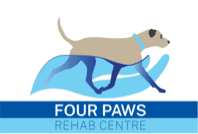Arthritis or osteoarthritis is a chronic degenerative and progressive disease of the joint. As the disease progresses, there is loss of cartilage, production of bony spurs, and thickening of the soft tissues associated with the joint. Clinically we see signs of pain such as limping, difficulty rising, trouble getting in and out of the car, changes in personality, and reluctance to exercise.
About 25% of dogs are diagnosed with arthritis. Cats are thought to be similarly affected, but are not diagnosed as often due to them not showing signs as clearly as dogs.
Arthritis can be primary e.g. associated with aging, or it may be secondary to e.g. injury to the joint or other underlying factors such as hip dysplasia, elbow dysplasia or patella luxation.
Diagnosing, Treating and Managing Arthritis
Initially your veterinarian will perform a physical exam on your pet. Next a management plan will be formed, this may include radiographs to assess the joints, and determine the severity of the disease.
Arthritis supplements may then be recommended for ongoing management. The products that we recommend are:
Antinol Rapid: Antinol rapid contains PSCO-524 which is a concentrated form of a marine lipid extracted from Green Lipid Mussels of New Zealand, and Euphausia superba, which is an extract from Krill. The combination of these ingredients has anti-inflammatory effects that are helpful in conditions such as arthritis.
Antinol comes in a small red capsule that can be hidden in food, given directly by mouth or some even take it as a treat! Dogs are started on a loading dose for two weeks and then drop to a maintenance dose for life.
4cyte Epiitalis Forte: This supplement comes in a gel format. It contains Epiitalis which is an oil extract from the seed of Biota orientalis. Studies have shown that Epiitalis can assist in controlling inflammation and may increase the production of cartilage in the joints. The gel is given daily and can be applied on food.
We also recommend a series of injections called Cartrophen. Cartrophen contains pentosan polysulfate sodium, which has been shown to help maintain the health of the joint in a few ways including by stimulating cartilage production, increasing blood supply to the joints and inhibiting cartilage degrading enzymes.
These injections are initially given once weekly for four weeks, then top up injections are given every 3 months.
Laser: We offer laser therapy with our Multi Radiance Medical Laser. The laser has three light wavelengths to penetrate tissues and kick start the body’s natural healing process to treat conditions like arthritis. This treatment can be done at the same time as the cartrophen injections and is performed by a nurse in the clinic.
NSAID’s: Non-steroidal anti-inflammatory drugs are used as the next line of therapy. They are prescription medications and provide pain relief as well as anti-inflammatory effects. These medications may be able to be used in the short term e.g. when your pet has a painful flare up. Other times they need to be on long term treatment. In this case it is recommended to monitor liver and kidney values with regular blood test.
Diet control and weight loss are also very important in managing arthritis. If your dog is overweight, it can be difficult to get them to lose weight if they have arthritic pain. Weight loss may need to be a gradual process as other elements of the arthritis management plan are implemented.
Gentle exercise is also very important. Finding the right balance of keeping your dog’s muscles active without causing further inflammation and stress on the joints can be difficult but rewarding. For example, start with a short lead walk each day, monitor your dog’s mobility at home in the following 24 hours, if they are managing well, then we can increase the walk time. Swimming can be a great way to exercise a dog with arthritis without putting pressure on the joints.
Contact us today








